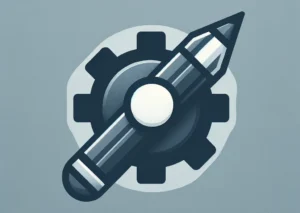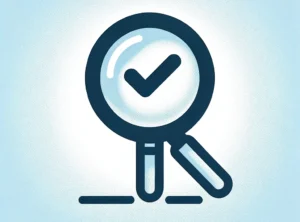Staring at job listings can sometimes feel like reading a foreign language. “Entry-level” that requires three years of experience, internships asking for seasoned pros – it’s enough to make you wonder if there’s a secret job market out there you haven’t been invited to. This blog post is your golden ticket to understanding when the time is just right to dive into the job hunt, no secret handshakes needed.
By the end of this post, you’ll have a clear picture of how timing plays its part in your job-seeking journey.
Quick Takeaways:
- The “best” age to start your job journey is the age you’re at right now; focus on building hands-on experience through internships, volunteer work, or personal projects.
- Prepare for the job market at any age with continuous education, skill-building, and active networking to ensure your knowledge and connections are up-to-date.
- Adaptability, continuous learning, and emotional intelligence are key to overcoming age-related job search challenges and achieving career success.
Is There a “Best” Age to Begin Working?
When we talk about the “best” age to start working, it’s really a mix of personal choices, legal boundaries, and societal expectations. Legally, the Fair Labor Standards Act (FLSA) sets the minimum age for employment at 14 years old for non-agricultural jobs, though younger children can work in some capacities like acting or delivering newspapers.
Starting work in high school can instill a strong work ethic and offer a taste of financial independence, not to mention it can beef up a college application. However, juggling school and a job can be tough, and grades might take a hit if the balance isn’t right.
College students often snag internships to blend academic theory with practical skills. The perk? A smoother transition to the full-time job market. The downside? It can sometimes lead to burnout, and some may miss out on quintessential college experiences.
As for those jumping into the workforce after graduation, they might have a degree in hand, but they’re also starting from scratch experience-wise. That’s not necessarily bad; employers often seek fresh talent who bring the latest academic knowledge to the table.
So, is there a “sweet spot”? Not really. It’s like asking when’s the best time to eat an apple. It all depends on how hungry you are, or in this case, your personal circumstances. Is financial necessity knocking at your door? Are you chomping at the bit for real-world experience? These are factors that shape the decision.
What Can You Do to Prepare for the Job Market at Any Age?
Whether you’re a teen, fresh out of college, or changing careers later in life, the job market waits for no one. Let’s break down some age-proof strategies:
- Education: It’s a solid foundation. No matter your age, learning never goes out of style. Online courses, workshops, and continued education can keep your knowledge fresh.
- Internships: They’re the golden ticket for hands-on experience. Platforms like Internships.com can help snag one that aligns with your passion.
- Volunteer Work: Doing good feels good, and it looks great on a resume, too. VolunteerMatch is a fantastic place to start looking for opportunities.
- Skill-Building Activities: Learn to code with resources like Codecademy, or get artsy with local community classes. These can give your skill set some serious sparkle.
- Networking: It’s not just a buzzword. LinkedIn isn’t the only game in town; joining professional associations related to your field can open doors, too.
The key takeaway? Start building your brand. Create a strong LinkedIn profile, refine your resume, and always be hungry to learn and connect—regardless of your age.
How Do You Know When You’re Ready for a Job?
You might feel a stirring in your gut, an eagerness to step up to the plate, or maybe there’s just a bill that needs paying. Here are a few signs you might be ready to leap into employment:
- Financial Necessity: Sometimes, the bank account decides for you.
- Independence: You’re craving that sweet taste of self-reliance.
- Experience Hunger: You want to strut your stuff and build your professional chops.
- Educational Milestones: Maybe you’ve just nailed a degree, or wrapped up a certification course. That’s a green light if there ever was one.
Before you make the jump, gaze inward. Consider what you want out of a job beyond the paycheck. Will it pave a path to your dream career, or is it a stepping stone to something greater? Consult mentors, chat with peers, and do a bit of soul searching. When the pieces of the puzzle fit, you’ll feel it.
Remember, this isn’t the finish line—it’s the starting block. Keep gathering the knowledge you need, chase down the experiences you crave, and when opportunity knocks, be ready to open the door, no matter the age on your driver’s license.
What Challenges Might Different Age Groups Face When Looking for Work?
When you’re on the hunt for a new gig, there’s no one-size-fits-all—what you’re up against can vary as much as your shoe size. Let’s break down the hurdles by age group and serve up some tips to leap over them with finesse.
Young Whippersnappers (16-24): Fresh out of the gate, this group’s often got the energy, but not the experience. If “entry-level” jobs ask for three years of experience, what’s a newbie to do? Get creative. Internships, volunteer work, or even personal projects can showcase your skills. And don’t forget: networking isn’t just for the seasoned pros. Your aunt’s neighbor’s cousin might just be your ticket to an intro.
Mid-Career Movers (25-54): You’ve got the experience, sure, but now you’re juggling job apps with life’s full plate. And let’s face it, technology’s moving fast–you need to keep up or you’ll get left behind. Make continuous learning your new hobby. Online courses, workshops, even YouTube tutorials—stay sharp and show ’em you’re not afraid of new tricks. Be sure to highlight not just your track record, but also your adaptability and dedication to personal development.
Seasoned Veterans (55+): Some folks might try to put you out to pasture, but you’re not ready for retirement just yet. Age discrimination is the elephant in the room. Tackle it head-on by focusing on your unmatched expertise and wisdom. Leverage your extensive network and don’t shy away from modernizing your skillset. Your years are chock-full of value—make sure employers see it.
But here’s the lowdown that most advice columns skip: attitude is everything. Whether you’re a greenhorn or a grey-templed guru, walk in with confidence, not arrogance. Show them you’re there to contribute, learn, and grow—regardless of the candles on your birthday cake.
How Does Starting Work Early (or Late) Impact Your Career?
So, you’re either at the starting line ready to sprint or you’ve been warming up and are now stepping into the race. When does the timing affect the finish line?
Early Birds: Catching the worm can mean snagging opportunities for growth, paving the way for salary increases and promotions down the line. Starting young also gives you more time to recover from career stumbles and financial faux pas. 401(k), here you come!
But don’t burn out. It’s a marathon, not a sprint. Building in breaks and ensuring work-life balance can prevent you hitting the wall too soon.
Late Bloomers: There’s richness in starting late, too. Maybe you’ve traveled, studied, or raised a family first. Your diverse experiences can be a goldmine to employers. Sure, you might have a shorter runway for retirement savings, but mature workers often have a financial buffer to make strategic investments in their career—like further education or targeted training.
What’s seldom talked about, though? The importance of planning. If you’re a late starter, map out your trajectory. Will you need a career that maximizes earnings quickly? Or one that offers flexibility to juggle health or family commitments?
Remember, it’s not just when you start, but how you run the race. Smart moves, like investing in high-demand skills or industries, can accelerate progress whenever you begin.
And here’s the kicker: the age you start working may have less to do with your success than the strategies you use along the way. As recent studies suggest, continuous learning, adaptability, and emotional intelligence may well trump years of experience in the modern job market.
So, whether you’re a teen with a dream or a fifty-something with a five-year plan, gear up and get going. The “best” age to start your job journey? It’s the age you’re at right now.
Remember, the readers of this blog are relying on you to provide guidance that’s as up-to-date and accurate as possible, mixed with that special sauce of experience and insight. Keep the content flowing, and you’ll be connecting with people at every stage of their career marathon.


![When to Ask for a Raise and How Much to Ask For? [Guide] planning budget writing expenses in notebook](https://howmonk.com/wp-content/uploads/2022/04/planning-budget-writing-expenses-in-notebook-300x200.jpg)




